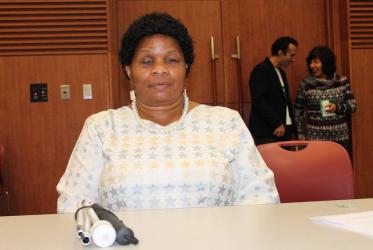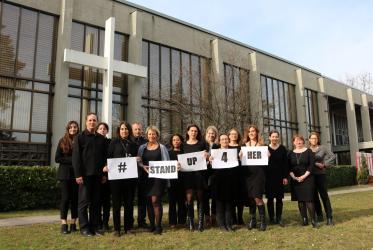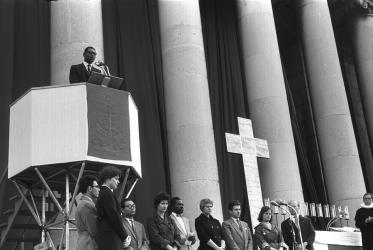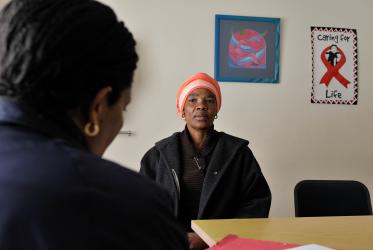Displaying 141 - 160 of 248
Lent is “time for water justice”
20 March 2017
“What can we contribute as a worldwide fellowship?”
06 March 2017
Prayer guide inspires women’s empowerment
27 February 2017
“Overcoming economic injustice” vision of WCC’s Athena Peralta
23 February 2017
Bossey’s new missiology professor shares world of Africa and Europe
01 February 2017
WCC welcomes Grand Imam of Al-Azhar
01 October 2016
Owe Boersma will strive for equilibrium as EAPPI coordinator
18 August 2016
Study group focuses on moral discernment in churches
04 August 2016
Religion: Way of war or path to peace?
30 June 2016
New Executive Committee members elected in Trondheim
28 June 2016
Local work by faith-based groups key to ending AIDS
27 June 2016











